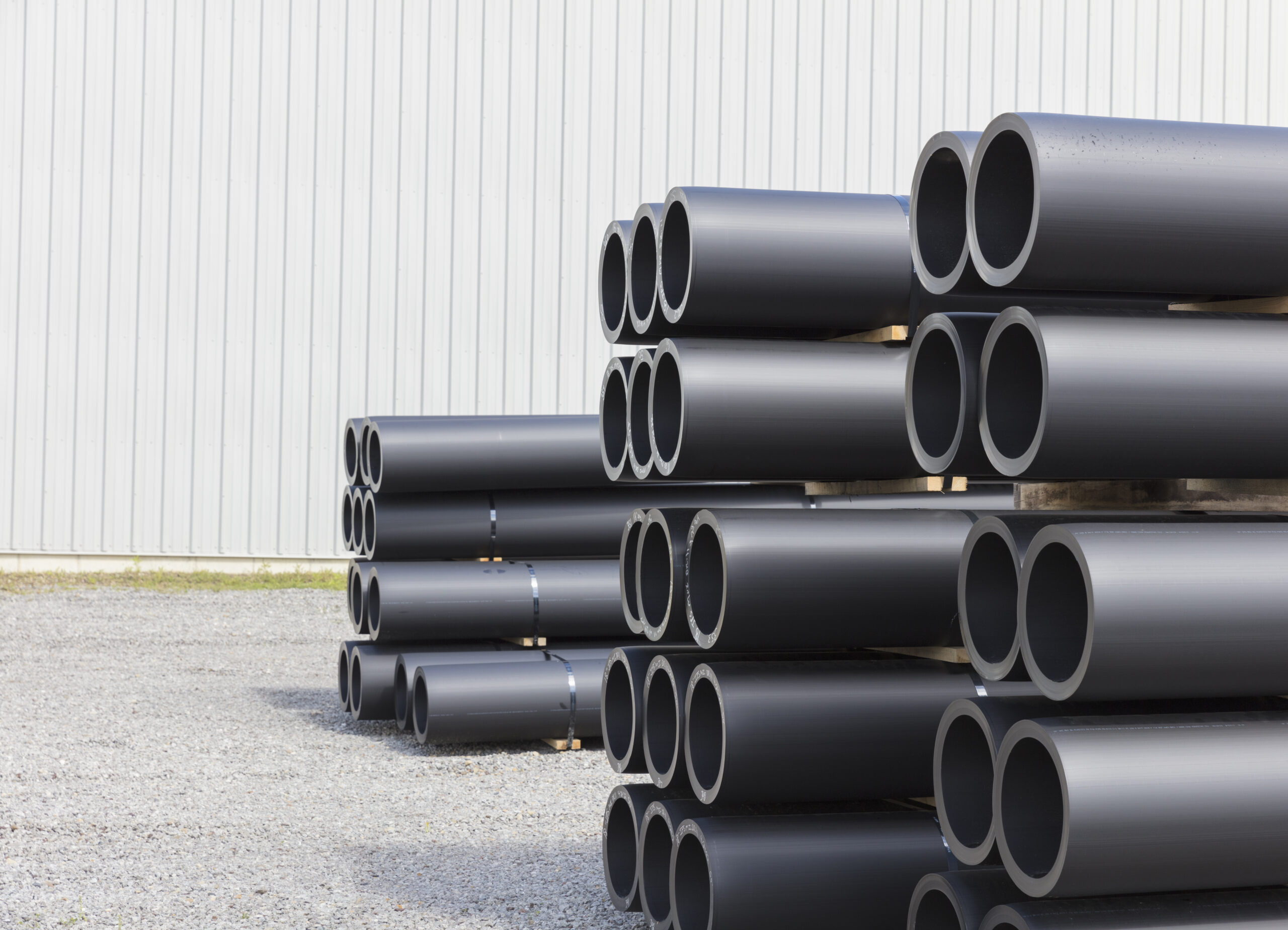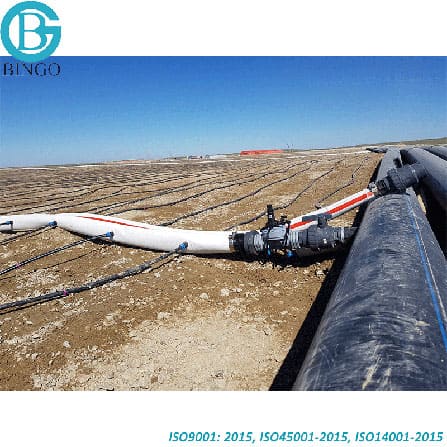Recognizing the Key Conveniences of HDPE Pipeline for Water and Wastewater Monitoring
Making use of HDPE pipeline in water and wastewater administration provides countless advantages that merit consideration. Its remarkable resilience and lengthy life expectancy make it a favored option for numerous jobs. Additionally, the material's resistance to rust and chemical damage boosts its integrity in numerous settings. The benefits prolong past simply longevity and resistance. American Plastics HDPE Pipe for Oilfield. Exploring its cost-effectiveness and environmental influence exposes much more compelling factors for its extensive fostering in modern facilities
Exceptional Durability and Long Life

HDPE pipe attracts attention for its outstanding resilience and longevity, making it a recommended choice in water administration systems. Created from high-density polyethylene, these pipelines can hold up against significant pressure and anxiety, guaranteeing trustworthy performance over time. Their robust nature enables them to withstand extreme ecological problems, consisting of temperature level variations and soil activities, which can cause various other products to fail.
The life-span of HDPE pipes typically surpasses half a century, supplying an affordable remedy for communities and sectors alike. Furthermore, the product's light-weight properties streamline setup, decreasing labor costs and durations. This longevity lessens the requirement for regular fixings or substitutes, further improving its financial charm.
In water management applications, the dependability of HDPE pipes suggests fewer interruptions and boosted solution connection, making them essential to sustainable framework development. The mix of toughness and long life solidifies HDPE's duty as a foundation in reliable water management options.

Resistance to Corrosion and Chemical Damages
While lots of products catch rust and chemical damages gradually, HDPE pipes display amazing resistance, making them excellent for various water monitoring applications. This durability comes from the molecular structure of high-density polyethylene, which is inherently non-reactive and does not corrode like steels or break down from direct exposure to rough chemicals. Therefore, HDPE is extremely reliable in environments with aggressive substances, such as wastewater systems that may contain acids, bases, and natural solvents.
In addition, HDPE pipelines can endure environmental elements such as dirt acidity and saline conditions, better enhancing their suitability for varied applications (American Plastics HDPE Pipe for Oilfield). Their capacity to keep structural honesty with time lowers the risk of leakages and failures, which is important in ensuring the security and reliability of water circulation and wastewater administration systems. Subsequently, the resistance to deterioration and chemical damages substantially adds to the total effectiveness and durability of HDPE piping solutions
Cost-Effectiveness and Economic Advantages
When thinking about the financial effects of water administration systems, the cost-effectiveness of HDPE pipes comes to be evident. These pipelines use reduced setup and maintenance prices contrasted to traditional products like metal or concrete. Their light-weight nature streamlines transport and setup, leading to lowered labor expenditures. Furthermore, HDPE pipelines show a lengthy life expectancy, typically exceeding half a century, which converts to fewer substitutes and lasting cost savings.
Additionally, the resistance of HDPE to corrosion and chemical damage reduces the demand for costly repairs and substitutes. The pipes likewise sustain effective water circulation, minimizing energy expenses related to pumping systems. By mitigating leakages and water loss, HDPE pipes add to substantial financial advantages for municipalities and industries alike. In general, the first financial investment in HDPE piping can produce significant monetary returns over the lifespan of the water monitoring system, making it a prudent choice for sustainable infrastructure development.
Ecological Sustainability and Minimized Influence

Versatility and Flexibility in Setup
As a result of their one-of-a-kind buildings, HDPE pipelines use amazing convenience and adaptability in installation, making them ideal for a large range of applications. Their lightweight nature enables easier handling and transportation, decreasing labor prices and installment time. HDPE pipes can be curved and shaped to fit different terrains and job requirements, which is specifically valuable in challenging atmospheres.
Furthermore, their resistance to rust and chemical damages enables setup in varied setups without the demand for specialized protective layers. The ability to fuse joints creates a continuous, leak-free system, boosting the total honesty and dependability of the installment. HDPE's adaptability likewise fits ground motion, minimizing the threat of damages in areas susceptible to shifting soil. Overall, these characteristics make HDPE pipes not only versatile but likewise a recommended option for water and wastewater administration systems.
Frequently Asked Concerns
Exactly How Does HDPE Pipe Contrast to PVC in Water Management Applications?
HDPE pipeline offers premium versatility, resistance directory to rust, and longevity compared to PVC. Its lighter weight promotes less complicated installment, while its lengthy lifespan lowers substitute costs, making HDPE a favored selection in water administration applications.
What Is the Lifespan of HDPE Pipes Under Regular Conditions?
Under typical conditions, HDPE pipelines can have a lifespan ranging from 50 to 100 years. Their toughness and resistance to rust add to their long-term efficiency in various applications, making them a reputable choice for facilities.
Are HDPE Piping Recyclable After Their Life Span?
Yes, HDPE pipes are recyclable after their life span. hdpe pipe fittings Midland TX. They can be processed and repurposed into brand-new products, greatly minimizing ecological effect and advertising sustainability within the industry, making them an eco-friendly option for piping options
What Is the Installment Refine for HDPE Water Lines?
The installation procedure for HDPE pipelines involves website prep work, trenching, pipe combination or mechanical joining, backfilling, and stress testing. Appropriate strategies guarantee a long lasting and reliable system for transferring water and wastewater properly.
Can HDPE Pipeline Be Used for Both Drinkable and Non-Potable Water Solutions?
Yes, HDPE pipes can be made use of for both safe and clean and non-potable water supply. Their versatility, resilience, and resistance to rust link make them suitable for various applications, guaranteeing secure and efficient transportation of water in different contexts.